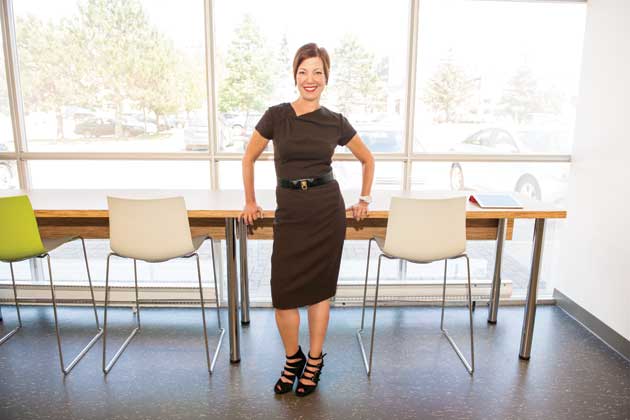What's In A Name?

It’s been a family joke for more than 30 years – ever since my brother Moses’ Soviet-era visit to the small Czech border town that gave us our surname. Znojmo (Znoy-mo) – Znaim in German – is in Moravia, in a region famous for wine and pickles, and it was part of the Austro-Hungarian Empire when our ancestors purportedly lived there. After his 1976 visit, Moses came home with a kitschy bark plaque showing a view of the city and the heraldic coat of arms from the Znojmo Castle, which dates back to the 11th century. I describe the image on the crest as a crazed fire-breathing chicken. We christened it “The Znojmo Chicken,” had it printed on stationary and used it as a logo for various family pursuits. The plaque hung in a place of pride in my parents’ home, and it never failed to make us giggle, even though the circumstances of that first visit were anything but funny.
“It was the height of the post-Czech Spring repression and the locals were wary of us,” Moses said. “We slept in our clothes because the hotel was without heat. The only source of warmth was mulled wine, the only food was schnitzel and pickled vegetables.” I decided to go back this year, en route to Berlin, promising to pick up tacky souvenirs and pickles.
“My brothers are going to be very disappointed,” I told my husband Doug as we got our first glimpse of the place, a postcard-pretty medieval town square. Our hotel was inside an old building up a hill – the Lahofer is a tasteful, ultramodern boutique with very good food and wine. “You are coming to Znojmo from Canada?’” asked the incredulous reception clerk.
This was my moment. I pulled out my passport, expecting hugs and high fives. “I am Znaimer!” I said excitedly, pointing to the picture page. She looked at me like I was an idiot. “That just means ‘from Znojmo’ in German,” she told me. She wasn’t the only one missing this point. I got the same response every time I tried to explain my connection to the place.
And I am starting to doubt there is much of a connection. The Jews were expelled from Znojmo in 1454 and not allowed back until 1848. Sure, there were exceptions. Wealthy businessmen could purchase the privilege of residency at great expense. I doubt our family fit that bill. And we wouldn’t have used a last name until much later. The Habsburg Emperor Joseph II decreed that Jews had to adopt German surnames as of 1788. He gave them four months’ notice. Back then, it must have taken much of that time for the news of the decree to reach towns like Znojmo. Did our ancestor have a chance to make a meaningful, well-thought-out choice or was it a last-minute lark, just to beat the deadline? Was this person, some 10 generations back, actually from Znaim, or did the moniker hark back to an even older family story about a distant past in this pleasant, prosperous hillside town?
There is a “new” Jewish cemetery in Znojmo that dates from the 1860s. But by then, the Znaimers were well-ensconced in Latvia, which is where my father came from. None of us have visited his hometown, Kuldiga, or my mother’s, Dobienke, Poland. That’s not surprising, given that they told us almost nothing about these places. My mother worked in a Soviet munitions plant when the Germans attacked Poland in 1939. She was evacuated with the entire factory and so became the only one in her family who survived the war. When the Germans entered Latvia, my father stole a bicycle and took off. He and his sister, who had left before the war, were the only survivors in their family. My parents met when their escape routes converged in the USSR’s Central Asian republics. We grew up keenly aware that the Holocaust was the central event in our family’s life – both its destruction in Europe and renewal in Canada.
So what exactly is in our name? I was struck by a very different war-era name change that was on display in the Jewish Museum in Berlin. German-Jewish men who managed to escape and join the British armed forces were required to adopt English names. The display showed unceremoniously recorded, handwritten index cards. That’s how, the exhibit explained, one such man named Wilhelm Oppenheimer became William Oakfield. If his story isn’t passed down, future generations will hit a dead end when they research “Oakfield.” It is surely the same for the Znaimers and so many of the rest of us in this nation of immigrants.
http://credit-n.ru/zaymi-nalichnymi-blog-single.html http://credit-n.ru/offers-zaim/ekapusta-besplatniy-zaim.html